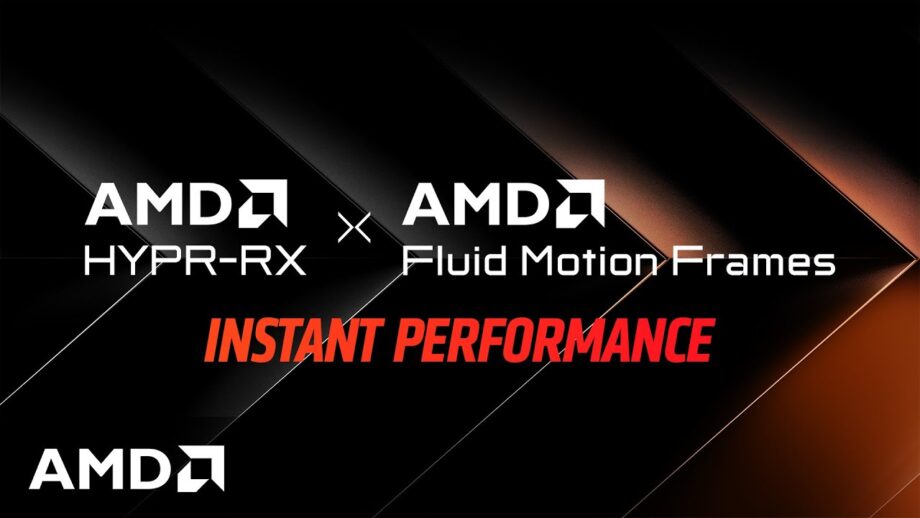What is AMD Fluid Motion Frames? The frame generation tech explained

There’s always been fancy terms for the technology used to beef up your PC graphics but, as artificial intelligence becomes more influential in computing, there seems to be more and more that are worth taking notice of. One of those is AMD Fluid Motion Frames.
Raw power is going to remain important in the gaming realm for many years to come but, with the likes of game streaming, AI technology and more coming along leaps and bounds, there is going to be plenty of other factors to consider.
Whether you are AMD, Nvidia or Intel, you’re going to be looking to new solutions to boost performance in games and we’ve seen that plenty already with integrated upscaling technology from all three brands. AMD’s FMF is slightly different. Here’s the skinny.
What is AMD Fluid Motion Frames?
Fluid Motion Frames (FMF) is a frame generation technology from AMD. The aim of FMF is to increase frame rate and smooth movement in games. AMD is integrated as part of its HYPR-RX, meaning it is a feature of the AMD software driver.
This is what sets it apart from a technology like Nvidia DLSS and its frame generation or, even, AMD’s own FidelityFX Super Resolution. Those technologies require game’s to support the technology, requiring developer resouce. Fluid Motion Frames working at a driver level means it works across DirectX 11 and 12 games across AMD Radeon RX 6000, RX 7000 and 700M graphics cards.

Grab the HP Omen 25L Gaming Desktop PC for just £629
The HP Omen 25L Gaming Desktop PC has seen a huge price crash over on Amazon, dropping down to a super affordable £629. That means you can get a modern PC for just a little bit more than a PS5 or Xbox.
- Amazon
- Save £620.99
- Now £629
A common downside to frame generation technology is that it can affect response times and latency, making the feature less viable for titles where fast response is paramount, such as competitive first-person shooters. Both AMD and Nvidia have technologies to attempt to counteract this negative, those being Anti-Lag+ and Reflex respectively.
AMD touts a big increase to frames across several AAA games. For example, AMD states that FMF can see Marvel’s Spider-Man Miles Morales on Very High 1080p settings can shoot up from 138fps to 272fps with HYPR-RX/FSR 2 Quality Mode and Fluid Motion Frames turned on. A similar rise of 222fps from 113fps is showcased for Call of Duty: Modern Warfare III while Starfield sees a jump from 59fps to 118fps.

Outside of a requirement to use AMD Radeon RX 6000, 7000 and 700M chips, those based on the RDNA 2 architecture, AMD also requires you use its AMD Software: Adrenalian Edition 24.1.1 and above as well as Windows 10/11. Interestingly, given its compatbility with DirectX 11 and 12, FMF can work with Nvidia GPUs, specifically with GeForce RTX 20/30-series chips.







